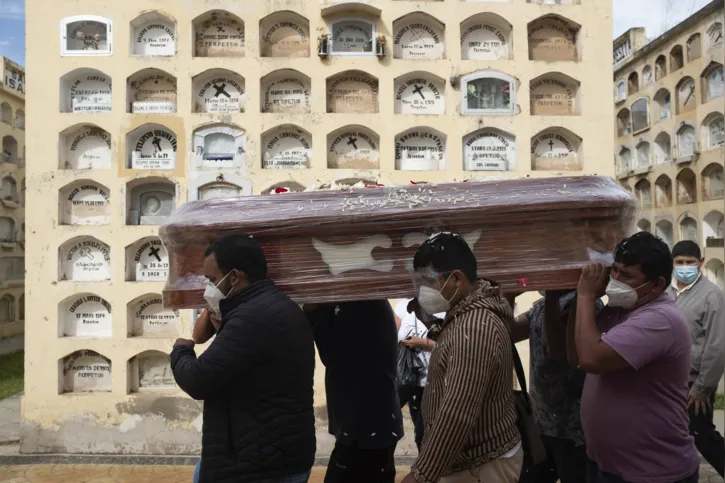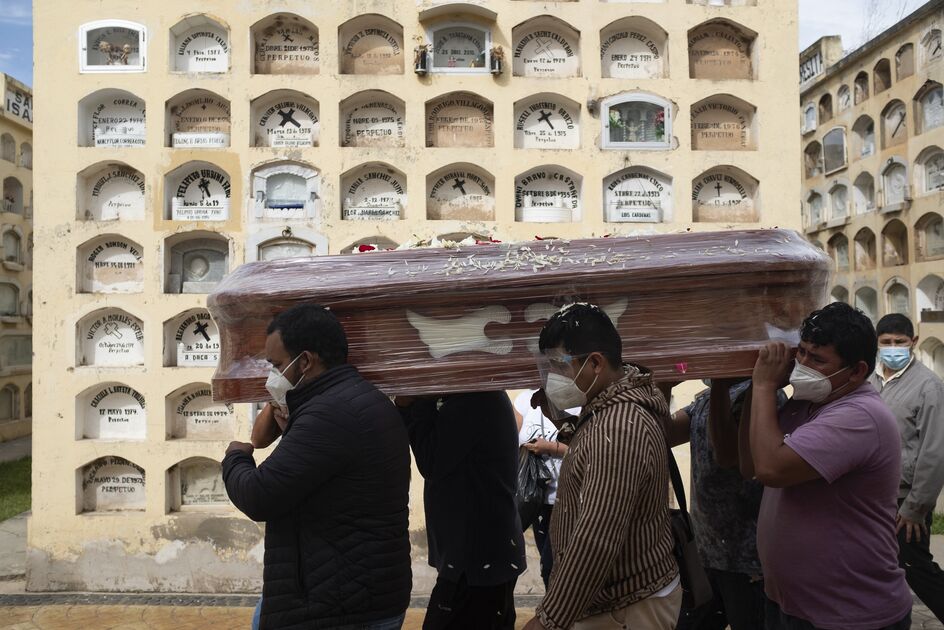In the month that the novel coronavirus pandemic completes two years, the world has crossed the 6 million mark of Covid-19 deaths. The count is based on research from Johns Hopkins University, USA. The previous 5 million deaths were recorded on November 1, 2021. This indicates that the last million deaths were reached in just four months. It may be a slower number than the disease escalation in 2021, but a high rate shows that not all weapons can be abandoned to prevent the Corona virus.


| Photo: Oscar Rosario/AFP
However, an analysis by a team from the English magazine The Economist estimates that due to underreporting of cases and deaths, the number closest to reality is between 14.1 million and 23.8 million victims.
Brazil is the second country with the number of deaths due to the new Corona virus, exceeding 650,000, according to Johns Hopkins. The United States continues to lead the ranking of countries with the most deaths due to Covid-19: 958,000 deaths. The following are India (515.1 thousand), Russia (349.2 thousand) and Mexico (319.9 thousand).
As for the number of cases globally since the beginning of the pandemic, it has exceeded 446 million, according to Johns Hopkins.
Vaccination progress has reduced the number of cases and deaths, but the Omicron variant is a cause for concern and the uneven distribution of immunization doses around the world poses a risk for the emergence of new strains.
According to the Our World in Data platform, more than 10.8 billion doses of vaccine against Covid-19 have been applied worldwide and 63% of the world’s population has received at least one injection, while those who have completed the first course of vaccination are 56%.
With immunization rates rising, several countries have begun to ease restrictions against the coronavirus, as has been the case in Denmark, Norway, Sweden, the United Kingdom and Australia. In Brazil, Rio de Janeiro has begun easing measures, as well as Santa Catarina and the Federal District.
In Parana, the decision of Sesa (Minister of State for Health) warned and the possibility of making restrictions more flexible can only happen at the end of March or the beginning of April. Minister Beto Prieto said he plans to wait at least 15 days after the end of the carnival to discuss the end of the mandatory use of masks.
Caution is a consistent position of Sesa. Each country has its own reality, and it is better to leave the process of easing restrictions in the hands of scholars. Of course, it would not be possible to think of a return to what it was before because epidemics and epidemics cause changes in the way of life of the population. With cholera, we learn to take better care of the water we drink; With AIDS, more people are starting to use condoms during sex to avoid infection; And the COVID-19 pandemic will make us rethink many things in our daily lives, such as hand hygiene and even more use of technology for work and travel.
Thanks for reading the paper!

“Wannabe internet buff. Future teen idol. Hardcore zombie guru. Gamer. Avid creator. Entrepreneur. Bacon ninja.”

